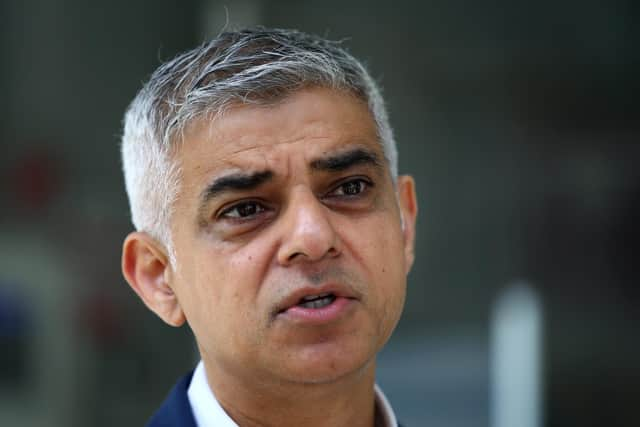Air pollution needs to be tackled but should we really be punishing motorists through clean air zones? - Jayne Dowle
This would mean some 200,000 owners of ‘non-compliant’ vehicles - in general, diesel cars made more than eight years ago, or petrol cars more than 18 years old - will have to pay £12.50 a day in a ‘fine’, even if they are simply going out to work or popping to the shops in far-flung suburbs such as Pinner, Middlesex and Bexley, Kent. Or be forced, if they can find the funds, to buy a new emissions ‘compliant’ car.
Already, Yorkshire cities including Bradford, where taxis are required to hand over £7 a day, and HGVs and buses £50 for entering the CAZ (clean air zone), and Sheffield, are rolling out their own punitive plans.
Advertisement
Hide AdAdvertisement
Hide AdAlthough - so far – private cars are exempt from these measures, people are right to be concerned that such open-ended arrangements leave no guarantees that they will not be expanded in future.


Campaigners in London say that Mr Khan has been emboldened by the success (for which read funds raised by fining drivers) of his inner London emission zones. And that’s why, in November, he found the confidence to announce an expansion of the zone to the furthest reaches of his domain, close to the M25.
It’s certainly an idea in vogue amongst city leaders, but how far does this harm not just local economies, but people themselves?
In 2020 Historic York made no secret of its plans to become the first car-free city in the UK, seeking to end all “non-essential” vehicle journeys inside the ancient city walls within three years.
Advertisement
Hide AdAdvertisement
Hide AdAlready, the expansion of pedestrianised areas has led to bitter protests from disability groups. Last year, York Accessibility Action reacted angrily to comments by Cllr Andy D’Agorne that “car parks are attractors of car journeys which add to the congestion and pollution issues”.
YAA pointed out that the “dire mismanagement of parking arrangements for Blue Badge holders” was alienating disabled drivers and leaving them trapped in their own homes, unable to visit or enjoy the city where they live.
As the daughter of two elderly parents, both Blue Badge holders (my mother, who has osteoarthritis uses a mobility scooter to get around), and a former London resident who still naturally rebels against any infringement on freedom of movement, I have to speak up.
Whilst I totally agree with Mr Khan, who was diagnosed with adult onset asthma at the age of 43, that air quality in our cities should be improved, I do think that this noble aim has to be balanced with understanding and practical common sense.
Advertisement
Hide AdAdvertisement
Hide Ad“Climate change is the biggest threat facing our world,” he has said. “And since being elected Mayor I’ve made it a mission to clean up London’s killer air pollution and reduce our carbon emissions so we can build a better, greener city for everyone.”
However, would climate activists like Mr Khan agree that measures such as reducing the number of car-parking spaces available for disabled people and placing additional financial burdens on households which can least afford it, such as those relying on shift workers to keep food on the table, aren’t going to build a ‘better’ city?
And of course, businesses and retailers which rely on customers being able to reach them easily will be straight in the firing line, leading to yet more ‘hollowing out’ of our post-pandemic commercial centres.
It is all very well for those in privileged positions to enjoy the luxury of worrying about air pollution, whilst those toiling beneath simply have enough to think about getting from day to day.
Advertisement
Hide AdAdvertisement
Hide AdIt is true that we do need to tackle air pollution, and much is being done, both by vehicle manufacturers and the oil industry to ensure that their products are as unpolluting as possible. In many towns and cities, public transport and council vehicles are switching to cleaner electric or hydrogen-powered models.
Campaigners, young and old, rich and poor, from all corners of the capital, are joining forces against Mr Khan’s ULEZ expansion, even mounting a legal challenge. It might be too late to stop him. It’s not however, too late to take a breath in our own region, and consider the bigger picture.